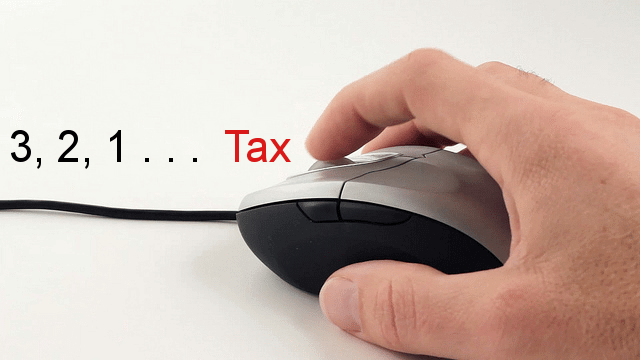Marketplace Fairness: Enjoy Tax-Free Clicks While You Can
- Apr 9, 2013 | Gail Cole

Photo credit: learningdslrvideo.com
“The days of tax-free clicks are numbered” says Forbes, in response to the Senate’s symbolic vote in favor of the Marketplace Fairness Act. In March, 75 senators voted in favor of the Durbin amendment to "establish a deficit-neutral reserve fund to ensure marketplace fairness by allowing States to enforce State and local use tax laws." Only 24 senators voted against the measure.
It should be underscored that the vote was a symbolic budget amendment, not binding law. So what does it mean?
Support for Brick-and-Mortar Businesses
The symbolic vote shows support for brick-and-mortar business owners who have long complained that online retailers have an unfair advantage because they don’t have to collect sales tax and therefore may charge lower prices. Under the 1992 Supreme Court Decision, Quill Corp v. North Dakota, only businesses with a physical presence, or nexus, in a state are required to collect and remit sales tax. The Court decided that collecting the tax would be an undue burden for businesses without a physical presence in the state, as there are thousands of taxing jurisdictions in the United States.
Yet in 1992, the Internet was not what it is today, and online retailers didn’t look like Amazon. The Marketplace Fairness Act (MFA) addresses the explosion of e-commerce and the complexity of state and local tax jurisdictions.
Two sections in the MFA bill define when states will be able to require retailers to collect online sales tax should the bill pass:
Streamlined States
“A [Streamlined Sales Tax] State may exercise authority under this Act beginning 90 days after the State publishes notice of the State’s intent to exercise the authority under this Act, but no earlier than the first day of the calendar quarter that is at least 90 days after the date of the enactment of this Act.”
Non-Streamlined States
“A State that is not a Member State under the Streamlined Sales and Use Tax Agreement is authorized notwithstanding any other provision of law to require all sellers not qualifying for the small seller exception … to collect and remit sales and use taxes with respect to remote sales sourced to that State, but only if the State adopts and implements the minimum simplification requirements in paragraph (2). Such authority shall commence beginning no earlier than the first day of the calendar quarter that is at least 6 months after the date that the State—(1) enacts legislation to exercise the authority granted by this Act...”
What Next?
U.S. Senator Dick Durbin (D-IL) said, “The Marketplace Fairness Act is a bill whose time has come in Congress and one that is long overdue for states, local governments and small businesses. … In order for this bill to become law, we’ll need to stand up for businesses and retailers across America once again in the Senate with a decisive vote on the full Marketplace Fairness Act. I expect a bipartisan coalition in the House will join us.” In a press release from last Friday, the senator notes that the Marketplace Fairness Act of 2013 “is cosponsored by 28 Republicans and Democrats in the Senate and 48 Republicans and Democrats in the House.”
Yet it is not without its detractors. Senator Max Baucus (D-MT), chairman of the U.S. Senate Finance Committee, issued a strong statement against the bill on March 21. He has also added an amendment to the bill, which has the potential to extend the debate for some time. The senator from Montana argued that Marketplace Fairness is not "just bad for Montana businesses, but small businesses all across America." He is worried that "[t]he amendment provides no protections for small businesses or protections from aggressive tax departments in other states."
On the other hand, Robert W. Wood reminds in Forbes that use tax is already owed on remote purchases if sales tax isn't paid at the time of purchase, and he points out that states are getting better at collecting use tax. Other states "have amended their law to define physical presence differently than in the past." Wood argues that "however the emotion-riddled debate over Marketplace Fairness ends up, the days of tax-free clicks are probably not long for this world."
As of this writing, the matter is not set to go before the House.
Is your business prepared for sales tax changes?

